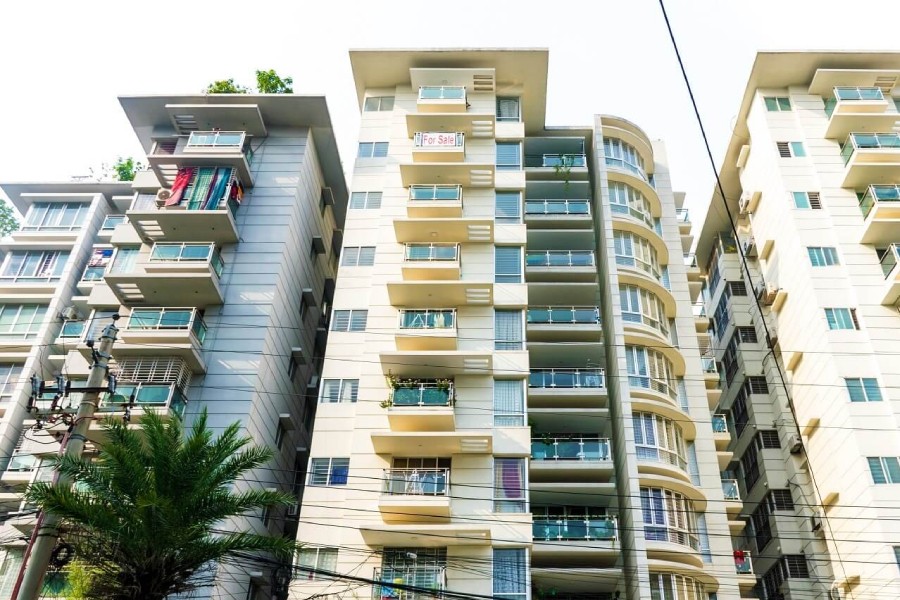
Published :
Updated :

When demand for second-hand accommodations ---residential flats to be precise---outstrips that for new units, it signals a decline in the purchasing capacity of intending buyers in the first place. This may as well indicate either the present owners' dire need for cash or move to a better accommodation and in several cases even migration abroad. Given the economic slump following the pandemic and the Ukraine war, the soaring inflation has hit the real estate business hard for a number of reasons. Investment in housing usually goes up when business and overall economy thrive. In less transparent environment of business and accumulation of wealth, however, the housing sector becomes an automatic choice for investment of black money. But for people willing to own a residential accommodation with their honest income this is certainly not a very good time.
The reasons are many but the most crucial one is the rise in the price of land and construction materials. Also, the new building construction rules worked out under the Detailed Area Plan (DAP) has made construction of buildings even costlier than before. This is because of the space of plots to be left vacant. Thus the affordability of the middle class has shrunk with their average income marking no rise over the past few years. Despite the current deceleration in the real estate business, the country's urbanisation has been growing at an annual rate of 3.0 per cent. However, it is the capital city and the port city which, for reasons understandable, are becoming the major recipients of migrants from villages. In these two cities, the rates of urbanisation are likely to be higher than anywhere in the country. This leads to a crisis of accommodation and the majority of unskilled and unemployed have no option but to look for shabby and unhygienic shanties and messes.
Middle-class people with a steady income and entitled to loan facilities calculate that the rents they have to pay for a decent accommodation in Dhaka or Chattogram can be enough to repay the loans over the years. But not all service-holders or small traders enjoy the loan facility and their dream of owning a house remains elusive, particularly at a time of economic crunch. Those who could save a portion of their income are either unable to do so or saving the barest minimum. This explains why more middle-class people are looking for used accommodations which have a significant price gap on the lower side. Also, the second hand flats have gas supply through pipes and are ready for occupation after a fresh coat of painting or little renovation.
The fact that Dhaka and Chattogram still remain the main attraction for employment explains why these two cities are bulging on all sides. But this is an archaic development. Decentralisation should be the prime condition for easing the pressure off from these two cities. Notwithstanding the mega infrastructure built or being built, they will remain unliveable because of the overall polluted environment and transport chaos. The overhead transportation facilities cannot solve the traffic gridlock on the streets below. A most densely populated mega city must go for dispersal of its population to better and healthier places elsewhere with comparable urban facilities and employment opportunities.


 For all latest news, follow The Financial Express Google News channel.
For all latest news, follow The Financial Express Google News channel.